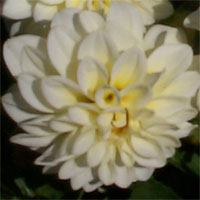

The Three Seals of the Dharma are Impermanence, Non-Substantiality (or Non-Ego), and Nirvana is Quiescence. The Three Seals of the Dharma are essential teachings of Buddhism. The first of the Three Seals of the Dharma is Impermanence. Impermanence comes from the Sanskrit word ANITYA. Impermanence means that all existence and phenomena are constantly changing. Things do not remain the same. Concerning this constant change there is the teaching of the Cycle of Change. The Cycle of Change refers to Formation, Continuation, Destruction, and Disintegration. The Cycle of Change shows the reality of things in this world that we live in. First, things are formed, things come together through causal condition. Then, things that are formed continue. Things have their life. Then, things perish, things are destroyed. And then there is disintegration. Things that were formed disintegrate.
Human beings also accord to the Cycle of Change. For this reason, the Buddhas and Patriarchs have spoken about gratitude. We should be grateful for our life, and esteem each day. And so we should live a life of diligence, using time, and doing our best each day.
 The
second Seal of the Dharma is Non-Substantiality(Non-Ego). In the Sanskrit language
the word is ANATMAN. This means that things do not have a permanent, unchanging
substance. Non-Ego means that there is no permanent, unchanging ego-self. The
teaching of Non-Substantiality or Non-Ego perhaps may be difficult for some
people to understand. However, in order to clarify this teaching there is Buddhist
practice and enlightenment. And the successive Buddhas and Patriarchs have spoken
of the Buddha-Nature to help people clarify the truth of Non-Ego. The Buddha-Nature
is the functions, the sense-functions. Seeing, hearing, smelling, tasting, feeling,
and thinking. Each and every person is endowed with the Buddha-Nature. However,
due to greed, anger, and ignorance, and attachments, people can go astray, causing
themselves hardships and suffering.
The
second Seal of the Dharma is Non-Substantiality(Non-Ego). In the Sanskrit language
the word is ANATMAN. This means that things do not have a permanent, unchanging
substance. Non-Ego means that there is no permanent, unchanging ego-self. The
teaching of Non-Substantiality or Non-Ego perhaps may be difficult for some
people to understand. However, in order to clarify this teaching there is Buddhist
practice and enlightenment. And the successive Buddhas and Patriarchs have spoken
of the Buddha-Nature to help people clarify the truth of Non-Ego. The Buddha-Nature
is the functions, the sense-functions. Seeing, hearing, smelling, tasting, feeling,
and thinking. Each and every person is endowed with the Buddha-Nature. However,
due to greed, anger, and ignorance, and attachments, people can go astray, causing
themselves hardships and suffering.
As there is no ego-self, often in life things do not go as we want them to. Although we would like things to happen in such a manner, quite often they turn out rather differently. These are terms of the world that we live in. For this reason we can be grateful for the Buddhist Way which can help people clarify life and death.
The Buddhas and Patriarchs have spoken of diligent progress for the benefit of all sentient beings. Each day there is a new you. Each day we can begin anew. Whether we wake up in the morning feeling good, or whether we wake up feeling not good; if we are in favourable conditions, or unfavourable conditions; in gain, or in loss; each day is a new day. So we should be diligent each day, using time. We should make our world. What we do now in the present will condition the future. This is cause and effect, the law of cause and effect. We should not waste time or be negligent. Being diligent, doing our best each day, and using our wits, surely our life can improve.
 The
Third Seal of the Dharma is Nirvana is Quiescence. Nirvana is the Sanskrit word
meaning extinction, or literally 'to blow off'. Nirvana originally refers to
the state of enlightenment attained by Shakyamuni. Nirvana refers to the state
where the delusion of ego/self is extinguished. Quiescence means a quiet condition.
To quietly work, to quietly rest. And it is to be content with one's circumstances.
And content with the fact that life is a struggle. And it is to understand the
world that we live in. Knowing that this is a world of causal conditions, various
causal conditions coming together. Knowing this we can be one with our existence.
For example, when the alarm rings to wake us in the mornings, we get up. We
wash our face, and take our breakfast. If we are a student attending school,
we would go to school and earnestly, wholeheartedly study. If a student studies
with diligence, this will bring it's effect. If a student would neglect their
studies, this will also bring it's effect. And for people working in the world
it is the same. Going to work each day, and wholeheartedly, earnestly doing
one's work. When we are busy, really being busy. This is the Way. And it is
also to be careful with one's life. As it a world of cause and effect, it is
necessary to be careful with one's life. Living and practising like this, we
can know well-being in the present.
The
Third Seal of the Dharma is Nirvana is Quiescence. Nirvana is the Sanskrit word
meaning extinction, or literally 'to blow off'. Nirvana originally refers to
the state of enlightenment attained by Shakyamuni. Nirvana refers to the state
where the delusion of ego/self is extinguished. Quiescence means a quiet condition.
To quietly work, to quietly rest. And it is to be content with one's circumstances.
And content with the fact that life is a struggle. And it is to understand the
world that we live in. Knowing that this is a world of causal conditions, various
causal conditions coming together. Knowing this we can be one with our existence.
For example, when the alarm rings to wake us in the mornings, we get up. We
wash our face, and take our breakfast. If we are a student attending school,
we would go to school and earnestly, wholeheartedly study. If a student studies
with diligence, this will bring it's effect. If a student would neglect their
studies, this will also bring it's effect. And for people working in the world
it is the same. Going to work each day, and wholeheartedly, earnestly doing
one's work. When we are busy, really being busy. This is the Way. And it is
also to be careful with one's life. As it a world of cause and effect, it is
necessary to be careful with one's life. Living and practising like this, we
can know well-being in the present.
These are the teachings of the Three Seals of the Dharma. Impermanence, Non-Substantiality (Non-ego), and Nirvana is Quiescence. These teachings were first spoken by the Original Teacher Shakyamuni Buddha. They have been transmitted over 2,500 years to the present day in order to benefit all sentient beings.